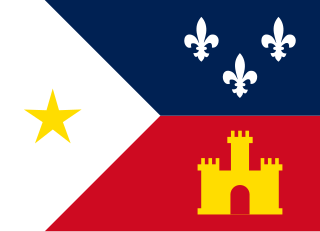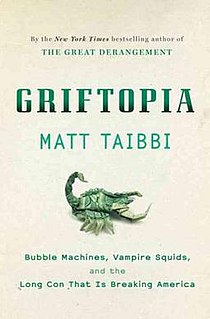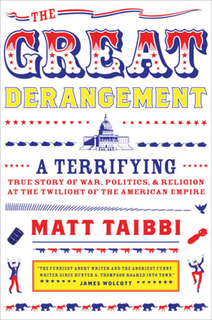
The Acadians are the descendants of the French who settled in Acadia during the 17th and 18th centuries.

The Cajuns, also known as Acadians, are an ethnic group mainly living in the U.S. state of Louisiana. They also live in the Canadian maritimes provinces consisting in part of the descendants of the original Acadian exiles—French-speakers from Acadia (L'Acadie) in what are now the Maritimes of Eastern Canada. In Louisiana, Acadian and Cajun are often used as broad cultural terms without reference to actual descent from the deported Acadians. Historically, Louisianians of Acadian descent were also considered to be Louisiana Creoles, although Cajun and Creole are often portrayed as separate identities today. Most Cajuns are of French descent. The Cajuns make up a significant portion of south Louisiana's population and have had an enormous impact on the state's culture.

Acadia was a colony of New France in northeastern North America which included parts of what are now the Maritime provinces, the Gaspé Peninsula and Maine to the Kennebec River. During much of the 17th and early 18th centuries, Norridgewock on the Kennebec River and Castine at the end of the Penobscot River were the southernmost settlements of Acadia. The French government specified land bordering the Atlantic coast, roughly between the 40th and 46th parallels. It was eventually divided into British colonies. The population of Acadia included the various indigenous First Nations that comprised the Wabanaki Confederacy, the Acadian people and other French settlers.

Annapolis County is a county in the Canadian province of Nova Scotia located in the western part of the province on the Bay of Fundy. The county seat is Annapolis Royal.

Acadian French is a variety of French originally associated with the Acadians of what is now the Maritimes in Canada. The language is spoken by the Acadian Francophone population of the Canadian province of New Brunswick, by small minorities on the Gaspé Peninsula and the Magdalen Islands of Quebec as well as in pockets of Francophones in Nova Scotia and Prince Edward Island. In the United States, it is spoken in the Saint John Valley of northern Aroostook County, Maine. Besides standard French, New England French is the predominant form of French spoken elsewhere in Maine.

The Expulsion of the Acadians, also known as the Great Upheaval, the Great Expulsion, the Great Deportation, and the Deportation of the Acadians, was the forced removal by the British of the Acadian people from the present-day Canadian Maritime provinces of Nova Scotia, New Brunswick, and Prince Edward Island, and the present-day U.S. state of Maine — parts of an area historically known as Acadia, causing the deaths of thousands of people. The Expulsion (1755–1764) occurred during the French and Indian War and was part of the British military campaign against New France. The British first deported Acadians to the Thirteen Colonies, and after 1758, transported additional Acadians to Britain and France. In all, of the 14,100 Acadians in the region, approximately 11,500 were deported, of which at least 5,000 died of disease, starvation or in shipwrecks. Men, women and children were forcibly removed from their homes and their land, which they'd farmed for a century. Their houses were burned and their land given to settlers loyal to Britain, mostly immigrants from New England and then Scotland. The event is largely regarded as a crime against humanity, though contemporary use of the term genocide is debated by scholars. A census of 1764 indicates that 2,600 Acadians remained in the colony having eluded capture.

Clive Doucet is a Canadian writer and politician. He served as the Ottawa City Councillor for Capital Ward from 1997 to 2010 and ran unsuccessfully for Mayor of Ottawa in the 2010 Ottawa municipal election, finishing third with 15 per cent of the vote. Eight years later, he again ran unsuccessfully for Mayor of Ottawa, this time finishing second with 22 per cent of the vote.

Matthew C. Taibbi is an American author, journalist, and podcaster. He has reported on finance, media, politics, and sports. He is a contributing editor for Rolling Stone, author of several books, co-host of Useful Idiots, and publisher of a newsletter on Substack.
Grand Dérangement is an Acadian folk band from southwestern Nova Scotia whose style shows influence of Acadian, American, Celtic, and French music. The band's name, literally, "great disturbance", comes from the French name for the Great Expulsion of the Acadians by the British in 1755, a major turning point in Acadian history. Grand Dérangement has toured in the US, Canada, France, Switzerland, and Germany.

The Acadians are the descendants of 17th and 18th century French settlers in parts of Acadia in the northeastern region of North America comprising what is now the Canadian Maritime Provinces of New Brunswick, Nova Scotia and Prince Edward Island, the Gaspé peninsula in eastern Québec, and the Kennebec River in southern Maine. The settlers whose descendants became Acadians primarily came from the southwestern and southern regions of France, historically known as Occitania, while some Acadians are claimed to be descended from the Indigenous peoples of the region. Today, due to assimilation, some Acadians may share other ethnic ancestries as well.
Taibbi is a surname. Notable people with the surname include:

The Royal Proclamation of 2003, formally known as Proclamation Designating 28 July of Every Year as "A Day of Commemoration of the Great Upheaval", Commencing on 28 July 2005, is a document issued in the name of Queen Elizabeth II acknowledging the Great Upheaval, Britain's expulsion of the Acadian settlers from Nova Scotia and New Brunswick, beginning in 1755.

Griftopia: Bubble Machines, Vampire Squids, and the Long Con That Is Breaking America is a 2010 book by the political journalist Matt Taibbi about the events that led to the financial crisis of 2008.

The Divide: American Injustice in the Age of the Wealth Gap is a 2014 non-fiction book by journalist Matt Taibbi about wealth inequality in the United States and its impact on the American conception of justice and the legal system.

The Great Derangement: Climate Change and the Unthinkable is a 2016 non-fiction book discussing climate change by Indian writer Amitav Ghosh. It particularly discusses the cultural depictions, history and politics of climate change, and the role of colonialism in driving the issue.

Insane Clown President: Dispatches from the 2016 Circus is a non-fiction book by Matt Taibbi about Donald Trump and the 2016 United States presidential election. The book contains illustrations by Rolling Stone artist Victor Juhasz. Taibbi's choice of title for the book was motivated by Trump's marketing style and is wordplay based on the name of American horrorcore band Insane Clown Posse. His work was inspired by Hunter S. Thompson, who had previously published Fear and Loathing on the Campaign Trail '72.
Trump derangement syndrome (TDS) is a pejorative term usually for criticism or negative reactions to former United States President Donald Trump that are perceived to be irrational, and have little regard towards Trump's actual policy positions, or actions undertaken by his administration. The term has mainly been used by Trump supporters to discredit criticism of his actions, as a way of reframing the discussion by suggesting that his opponents are incapable of accurately perceiving the world. Politico co-founder John Harris wrote that TDS is related to gaslighting, "another psychological concept in vogue in the Trump era." Journalists have used the term to call for restraint when judging Trump's statements and actions.

I Can't Breathe: A Killing on Bay Street is a 2017 book by Matt Taibbi, published by Spiegel & Grau, about the death of Eric Garner.

The Great Derangement: A Terrifying True Story of War, Politics, and Religion at the Twilight of the American Empire is a 2008 non-fiction book by Matt Taibbi, published by Spiegel & Grau on May 6, 2008.














